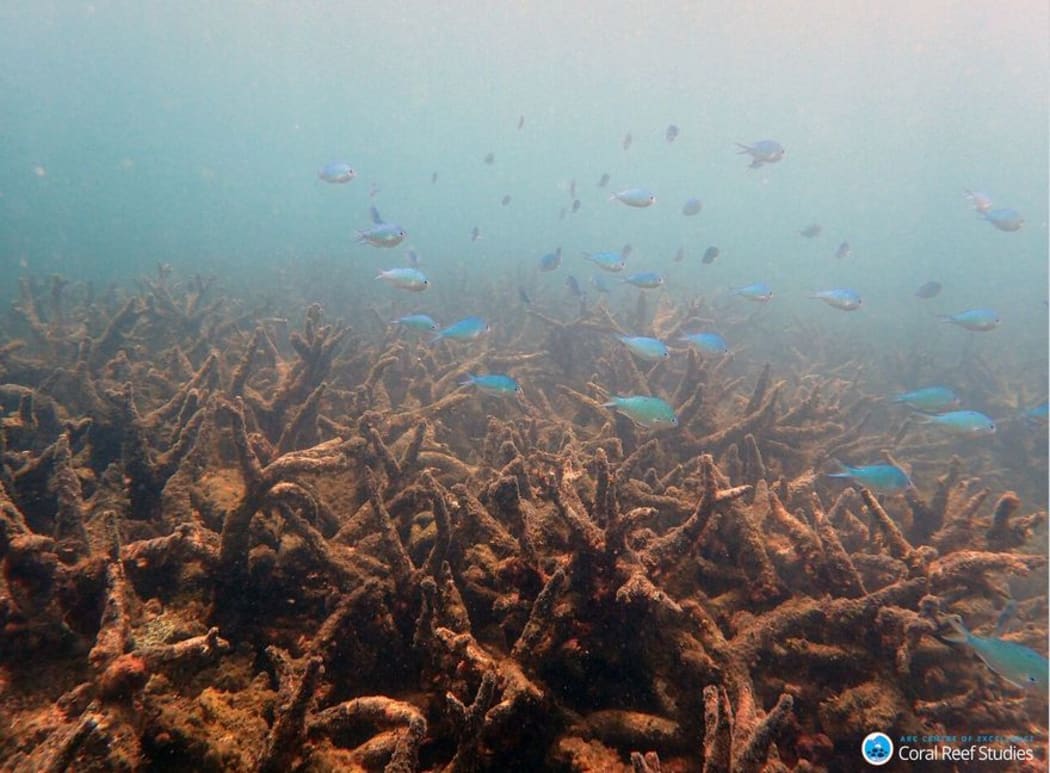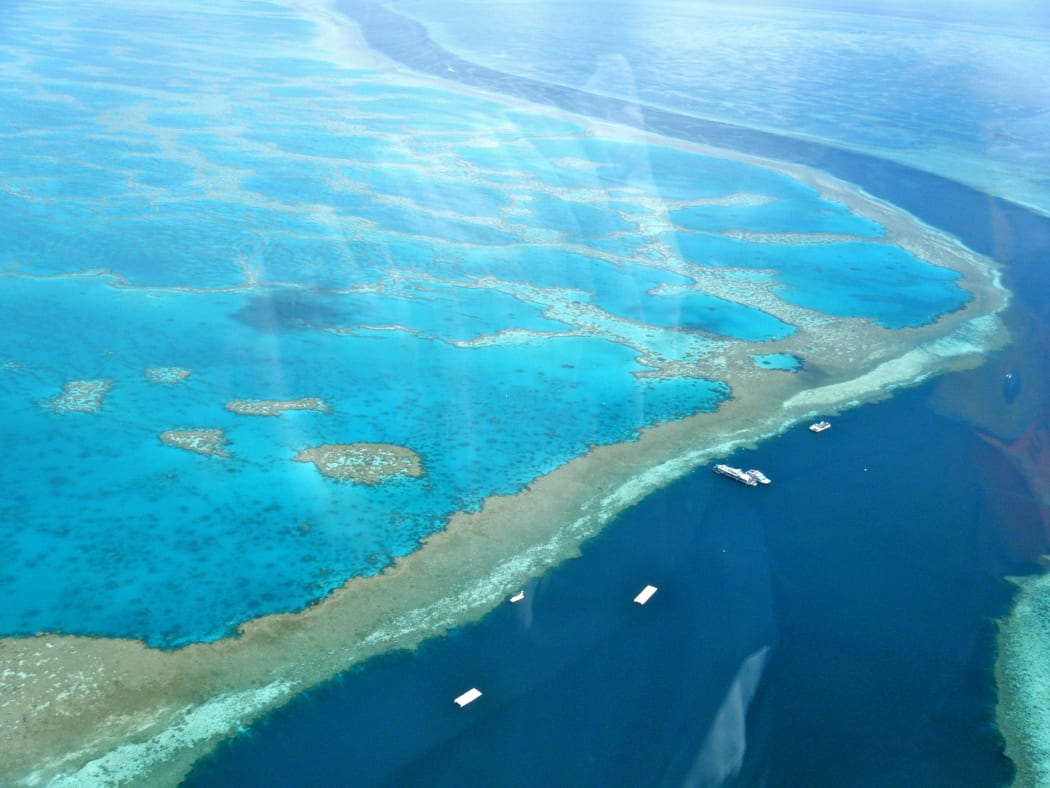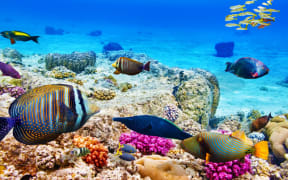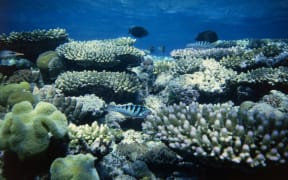The Great Barrier Reef once came close to extinction, new research into its history shows, which scientists say raises concerns for its future.

Staghorn corals killed by coral bleaching on Bourke Reef, on the Northern Great Barrier Reef, November 2016. Photo: Greg Torda / ARC Centre of Excellence for Coral Reef Studies.
Scientists said core samples from an ancient reef show it could survive a sea level rise similar to that currently predicted, but warn it was facing extra threats this time round from ocean acidification and sediment.
Marine geologist Dr Belinda Dechnik, from the University of Sydney, is lead author of the report and part of an international team examining ancient core samples drilled from deep within the reef.
The core samples are valuable time capsules from a period known as the Last Interglacial, which came after the second last ice age.
Back then, water from melting ice sheets was inundating coastlines around the world and was nearly fatal for the reef.
Dr Dechnik said what scientists had discovered was both reassuring and a cause for real concern.
"The past is the key to the present - the reef almost drowned just prior to 129,000 years ago," she said.
"Sea levels were rising very rapidly and the reef was not able to keep up."
Dr Dechnik said the reef eventually did manage to hold on.
"When sea levels had stabilised, the reef was able to catch up and re-establish itself," she said.
Dr Dechnik said the conditions that almost led to its demise then were similar to those facing the reef today.
"Sea levels were slightly higher, sea surface temperatures were slightly warmer than they are today, and they're in the levels that we have projected in the future," she said.
"We're not sure at what point and at what level these different impacts [such as sediment and ocean acidification] are going to come together and be too much for the reef."

Great Barrier Reef Photo: Wikipedia
University of Sydney Associate Professor Jody Webster said the new information showed the reef was resilient and the study provided a measure on what it could cope with.
"If we look at the forward projections for the next 100 years or so, we're expecting at least a metre of sea level rise depending on the rate of fossil fuel burning," he said.
"The modern reef, I think, would be able to keep pace with those rates of sea level rise."
But the team is concerned the modern reef is facing extra threats, which might prove the tipping point this time.
"The Great Barrier Reef 125,000 years ago wasn't dealing with impacts from humans," Dr Dechnik said.
"We didn't have terrestrial pesticide run-off, we didn't have to worry about dredge spoils, so these are additional factors that the reef will have to overcome."
Associate Professor Webster said the reefs were environmentally sensitive and faced "a range of quite serious threats".
"Anything we can do to improve control measures on both local and regional aspects is important and the big one moving forward is reduction of CO2 and I think that's crucially important to the reef," he said.
The Queensland and Federal governments acknowledged the critical importance of water quality for the health of the reef and said they were committed to reducing threats through a comprehensive 35-year plan known as the Reef 2050 Plan.
Meanwhile, the scientists plan to expand their study to give decision makers more accurate tools.
Associate Professor Webster said scientists were trying to develop computer models of how reefs grow and "ultimately try and make better projections about how reefs might respond in future".
Dr Dechnik said the findings highlighted the importance of increasing the reef's resilience now.
"We know that they can come back - they are resilient species and if we take the right measures they'll be around for the next generation," she said.
- ABC




